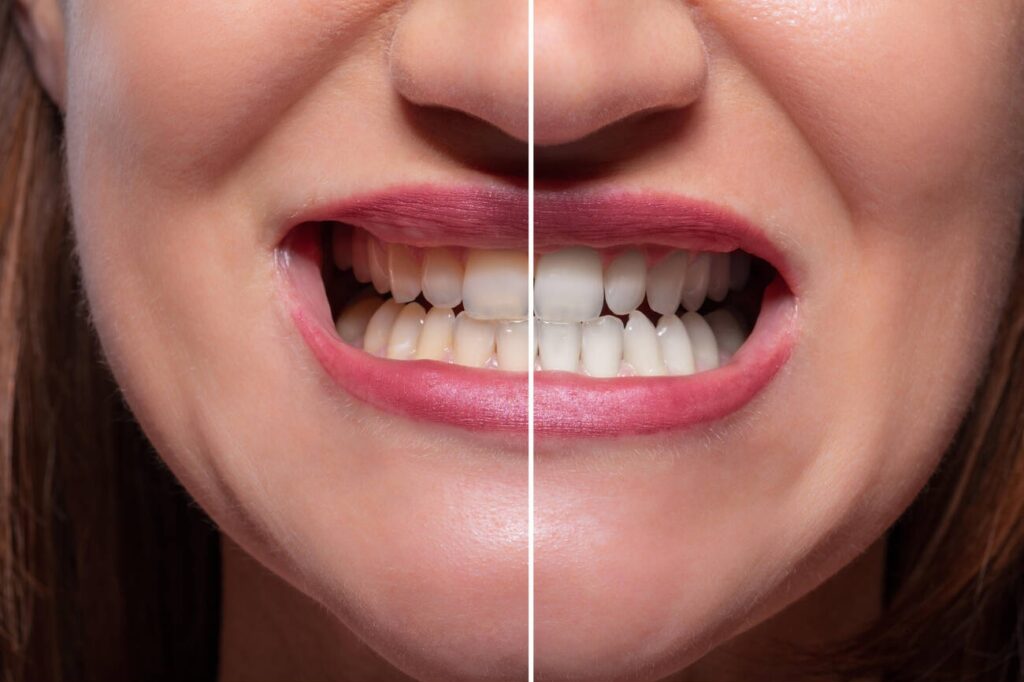Let’s face it, most of us have at least one thing we’d tweak about our smiles if we could. Maybe your front tooth is a bit uneven, or there’s a tiny chip you notice every time you catch your reflection on the Tube. Or perhaps it’s just stains from all those flat whites and glasses of Malbec that Londoners are famous for. Whatever the reason, composite tooth bonding has quietly become one of the most popular ways to refresh your smile in the city.
But here’s the real deal: is it genuinely safe? And if you’re investing your hard-earned cash, can you count on those pearly results to last?
What is Teeth Bonding
In simple terms, teeth bonding is like a mini-makeover for your teeth. No scary drills, no days of sore jaws. Your dentist takes a special tooth-coloured resin (it kind of looks like a thick putty), shapes it carefully onto your tooth, and then sets it with a blue light. Almost like giving one of your old jumpers a facelift, but with your smile instead.
Is Teeth Bonding Safe?
Short answer: It’s about as safe as it gets, as long as you’re in a good clinic.
Here’s why you don’t need to stress:
- Biocompatibility is the Buzzword:Nowadays, loads of London dental practices will check for allergies or odd sensitivities first—it’s not one-size-fits-all any more.
- Goodbye Nasty Additives:The top places in town avoid any fillers or dodgy chemicals. No BPA, no metals, nothing that’ll make you worry whenever you drink hot tea.
- Gentle on Teeth:There’s barely any drilling involved—so your natural tooth underneath stays pretty much untouched. Most folks leave with only the tiniest bit of sensitivity, if anything.
One thing I always tell friends who are thinking about it: don’t skimp on quality. A little research into your chosen clinic makes all the difference.
How Long is This Smile Upgrade Going to Last?
Here’s where it gets real. Bonding is awesome—but it isn’t ‘forever-ever.’ Think of it as a long-term accessory, not a permanent one like implants.
- Typical London Results:Most people see 5-7 years out of their bonded teeth—sometimes longer if you’re careful (seriously, don’t go popping open oat milk cartons with your teeth).
- Aftercare Matters:Your dentist’s skills and the materials make a difference, sure, but so does what you do at home. Sipping red wine or black coffee around the clock? It’ll show, eventually. Smokers and heavy tea drinkers might need the odd touch-up a bit sooner.
- Easy Fixes:The best bit is, if your bonding chips or stains, it’s usually a quick, straightforward fix. You’re not back to square one.
Any Downside of Teeth Bonding You Should Know?
- Not a ‘Permanent’ Solution:You will have to replace or refresh the bonding at some stage. It’s not a magic bullet, but for most of us in London, the trade-off is worth it—you keep your real teeth and avoid major dental procedures.
- Can’t Be Whitened:One thing to keep in mind: the composite resin won’t react to tooth whitening. So, get your whitening done first, then go for bonding.
- Stains Happen:Love coffee or enjoy a glass of wine? Expect to keep up with a solid dental hygiene routine, or else those stains might come creeping back.
Is Teeth Bonding Right for You?
If you want a quick, mostly pain-free way to level up your smile (without dropping a fortune or taking time off work), bonding is honestly one of the city’s best-kept secrets. To sum it up: Teeth bonding is safe, it lasts a good few years, and fixing chips or stains is a breeze.
Thinking about enhancing your smile? Visit our page on composite bonding London to explore treatment options, costs, and expert advice.

